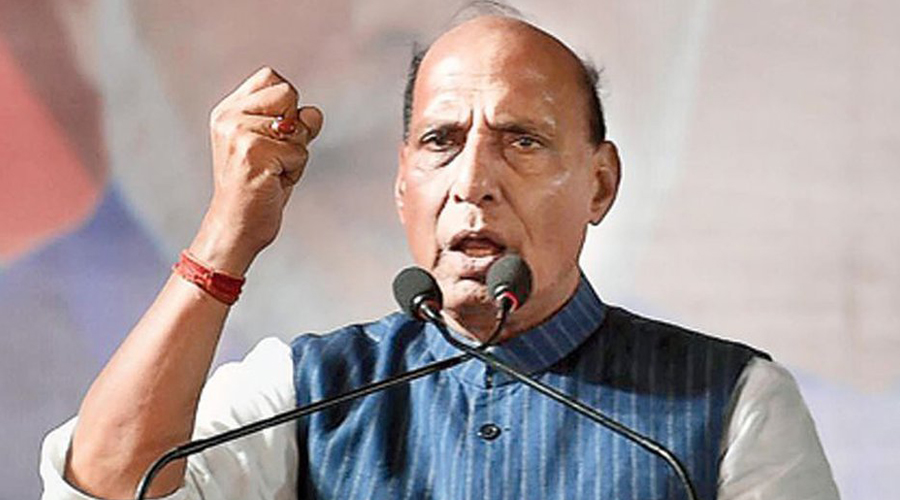Defence Minister Rajnath Singh and his American counterpart Lloyd Austin on Saturday held wide-ranging talks focusing on further expansion of bilateral strategic ties, evolving situation in the Indo-Pacific region and challenges of terrorism.
India is the third destination of Austin's three-nation first overseas tour, and the visit is seen as a reflection of the Joe Biden administration's strong commitment to its relations with its close allies and partners in the region.
On Saturday morning, Austin visited the National War Memorial and paid tributes to India's fallen heroes. Before the talks, he was given a guard of honour at the Vigyan Bhavan complex.
The US defence secretary called on Prime Minister Narendra Modi and held talks with National Security Advisor Ajit Doval hours after his arrival in Delhi on Friday.
In his meeting with Modi, he conveyed the Biden administration's strong desire to further deepen strategic ties with India to address the pressing challenges facing the Indo-Pacific.
Almost all key issues of mutual concerns, including China's aggressive behaviour in the region, are learnt to have figured in the deliberations between Austin and Doval.
"Thrilled to be here in India. The breadth of cooperation between our two nations reflects the significance of our major defense partnership, as we work together to address the most pressing challenges facing the Indo-Pacific region," Austin tweeted on Friday.
People familiar with the US official's visit said earlier that India's plan to procure around 30 multi-mission armed Predator drones from the US for the three services at an estimated cost of over USD 3 billion is expected to figure in Austin-Singh talks.
The Indo-US defence ties have been on an upswing in the last few years.
In June 2016, the US had designated India a "Major Defence Partner".
The two countries have also inked key defence and security pacts over the past few years, including the Logistics Exchange Memorandum of Agreement (LEMOA) in 2016 that allows their militaries use of each other's bases for repair and replenishment of supplies as well as provides for deeper cooperation.
The two sides have also signed COMCASA (Communications Compatibility and Security Agreement) in 2018 that provides for interoperability between the two militaries and provides for sale of high end technology from the US to India.











